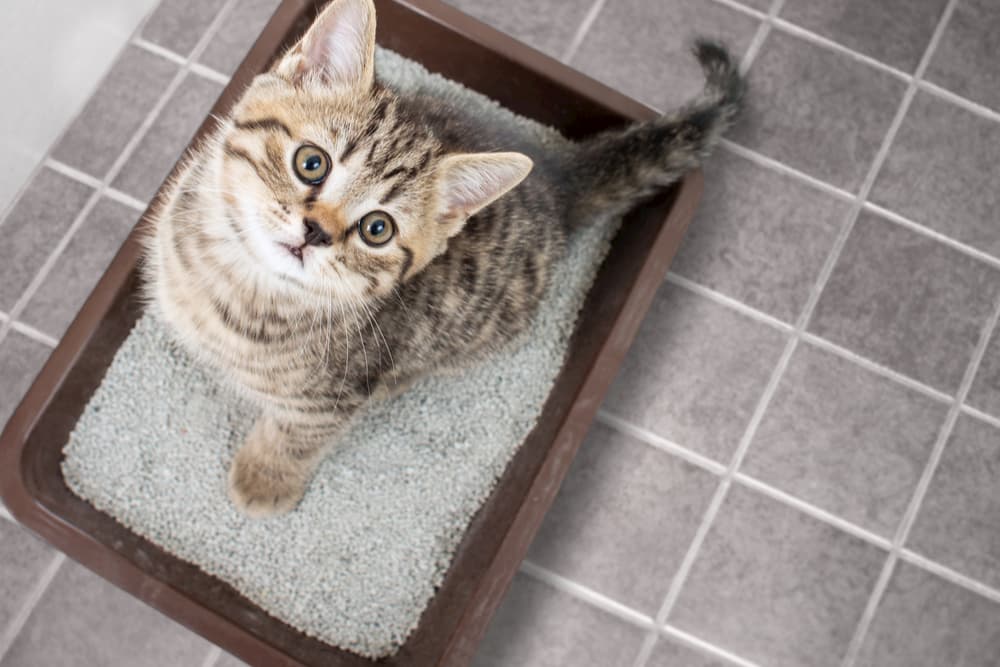Why Flushing Cat Poop Down Your Toilet Is Harmful - Suggestions for Proper Handling
Why Flushing Cat Poop Down Your Toilet Is Harmful - Suggestions for Proper Handling
Blog Article
We have found this great article about Can You Flush Cat Poop Down The Toilet? directly below on the web and reckoned it made perfect sense to write about it with you over here.

Introduction
As feline proprietors, it's important to bear in mind exactly how we throw away our feline pals' waste. While it might seem practical to flush feline poop down the toilet, this practice can have damaging effects for both the atmosphere and human health and wellness.
Alternatives to Flushing
Fortunately, there are more secure and much more responsible means to get rid of cat poop. Think about the complying with alternatives:
1. Scoop and Dispose in Trash
One of the most typical method of throwing away feline poop is to scoop it into a biodegradable bag and toss it in the garbage. Make sure to utilize a dedicated trash scoop and take care of the waste without delay.
2. Use Biodegradable Litter
Go with naturally degradable pet cat litter made from materials such as corn or wheat. These clutters are eco-friendly and can be securely taken care of in the trash.
3. Hide in the Yard
If you have a lawn, take into consideration hiding feline waste in an assigned area away from vegetable yards and water resources. Be sure to dig deep sufficient to stop contamination of groundwater.
4. Install a Pet Waste Disposal System
Buy a pet garbage disposal system specifically designed for pet cat waste. These systems make use of enzymes to break down the waste, decreasing odor and ecological effect.
Health Risks
Along with ecological worries, purging feline waste can likewise position wellness threats to humans. Cat feces might have Toxoplasma gondii, a parasite that can trigger toxoplasmosis-- a possibly extreme disease, specifically for pregnant females and people with damaged body immune systems.
Environmental Impact
Flushing cat poop presents hazardous virus and parasites into the water, posing a substantial threat to water environments. These impurities can adversely impact marine life and compromise water quality.
Verdict
Accountable pet dog ownership expands beyond providing food and sanctuary-- it also entails correct waste monitoring. By refraining from purging pet cat poop down the commode and opting for different disposal approaches, we can reduce our ecological footprint and secure human health and wellness.
Why Can’t I Flush Cat Poop?
It Spreads a Parasite
Cats are frequently infected with a parasite called toxoplasma gondii. The parasite causes an infection called toxoplasmosis. It is usually harmless to cats. The parasite only uses cat poop as a host for its eggs. Otherwise, the cat’s immune system usually keeps the infection at low enough levels to maintain its own health. But it does not stop the develop of eggs. These eggs are tiny and surprisingly tough. They may survive for a year before they begin to grow. But that’s the problem.
Our wastewater system is not designed to deal with toxoplasmosis eggs. Instead, most eggs will flush from your toilet into sewers and wastewater management plants. After the sewage is treated for many other harmful things in it, it is typically released into local rivers, lakes, or oceans. Here, the toxoplasmosis eggs can find new hosts, including starfish, crabs, otters, and many other wildlife. For many, this is a significant risk to their health. Toxoplasmosis can also end up infecting water sources that are important for agriculture, which means our deer, pigs, and sheep can get infected too.
Is There Risk to Humans?
There can be a risk to human life from flushing cat poop down the toilet. If you do so, the parasites from your cat’s poop can end up in shellfish, game animals, or livestock. If this meat is then served raw or undercooked, the people who eat it can get sick.
In fact, according to the CDC, 40 million people in the United States are infected with toxoplasma gondii. They get it from exposure to infected seafood, or from some kind of cat poop contamination, like drinking from a stream that is contaminated or touching anything that has come into contact with cat poop. That includes just cleaning a cat litter box.
Most people who get infected with these parasites will not develop any symptoms. However, for pregnant women or for those with compromised immune systems, the parasite can cause severe health problems.
How to Handle Cat Poop
The best way to handle cat poop is actually to clean the box more often. The eggs that the parasite sheds will not become active until one to five days after the cat poops. That means that if you clean daily, you’re much less likely to come into direct contact with infectious eggs.
That said, always dispose of cat poop in the garbage and not down the toilet. Wash your hands before and after you clean the litter box, and bring the bag of poop right outside to your garbage bins.
https://trenchlesssolutionsusa.com/why-cant-i-flush-cat-poop/

I discovered that review on How to Dispose of Cat Poop and Litter Without Plastic Bags when doing a search on the search engines. Do you know somebody who is involved in the subject? Please feel free to promote it. Many thanks for going through it.
Get An Estimate Report this page